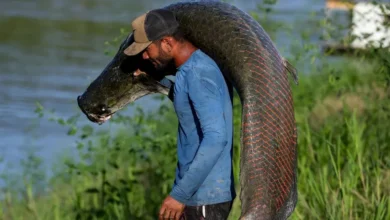Vote to be held on eradicating all Uist estate’s deer

A vote is to be held on whether all the red deer on a community-owned estate in the Western Isles should be culled.
Some residents of 93,000-acre South Uist Estate have raised concerns about Lyme disease, which can be spread to humans from infected deer tick bites.
South Uist has among the worst rates of the disease in the Western Isles.
The board of community company Stòras Uibhist, which manages the estate and would oversee the cull of 1,200 deer, believes the action to be unnecessary.
It said the animal’s population could be reduced through targeted culls.
But about 200 members of Stòras Uibhist have signed a petition calling for the removal of all the estate’s deer. The vote next week could involve up to 870 people.
As well as concerns around the disease, there have been complaints about grazing on croft land and the damage the deer do to woodland, gardens and other property.
Stòras Uibhist said it recognised deer numbers had been too high, adding that it had taken action to tackle the problem.
A spokesman said: “We believe eradication is unnecessary and would be economically damaging both to the estate directly and also to the wider community.”
There have been concerns around incidence of Lyme disease for a number of years.
The bacterial infection can cause neurological problems and joint pain if left untreated.
Research carried out by several organisations, including NHS Western Isles, suggested the Western Isles had a far higher recorded incidence of Lyme disease in its population than elsewhere in Scotland.
‘Horrendously large task’
Islander Tommy MacDonald said ticks had become a growing problem.
He said: “We have seen a huge increase in the numbers of ticks.
“When I was younger we used to only see ticks when shearing sheep or after a walk on the hills. But in recent years you could pick up a tick even in people’s gardens.”
Local vet David Buckland said he hoped people would understand the need for a large-scale cull, saying the risks posed by Lyme disease to islanders were “very, very real”.
But among those arguing against eradication is Alasdair Moffat, who has Lyme disease and had to have a pacemaker fitted because the infection affected his heart.
Mr Moffat said deer management provided jobs for young people in South Uist.
Another islander Rory MacGillivray, a gamekeeper with 40 years experience, said the situation had come to a head because Stòras Uibhist had not managed deer numbers properly in recent years.
He said a mass cull would pose the community company with a “horrendously large task”.
The Scottish Gamekeepers Association has also warned such a large-scale cull would be expensive, and has argued the deer densities on the estate were below Scottish government guidelines.











